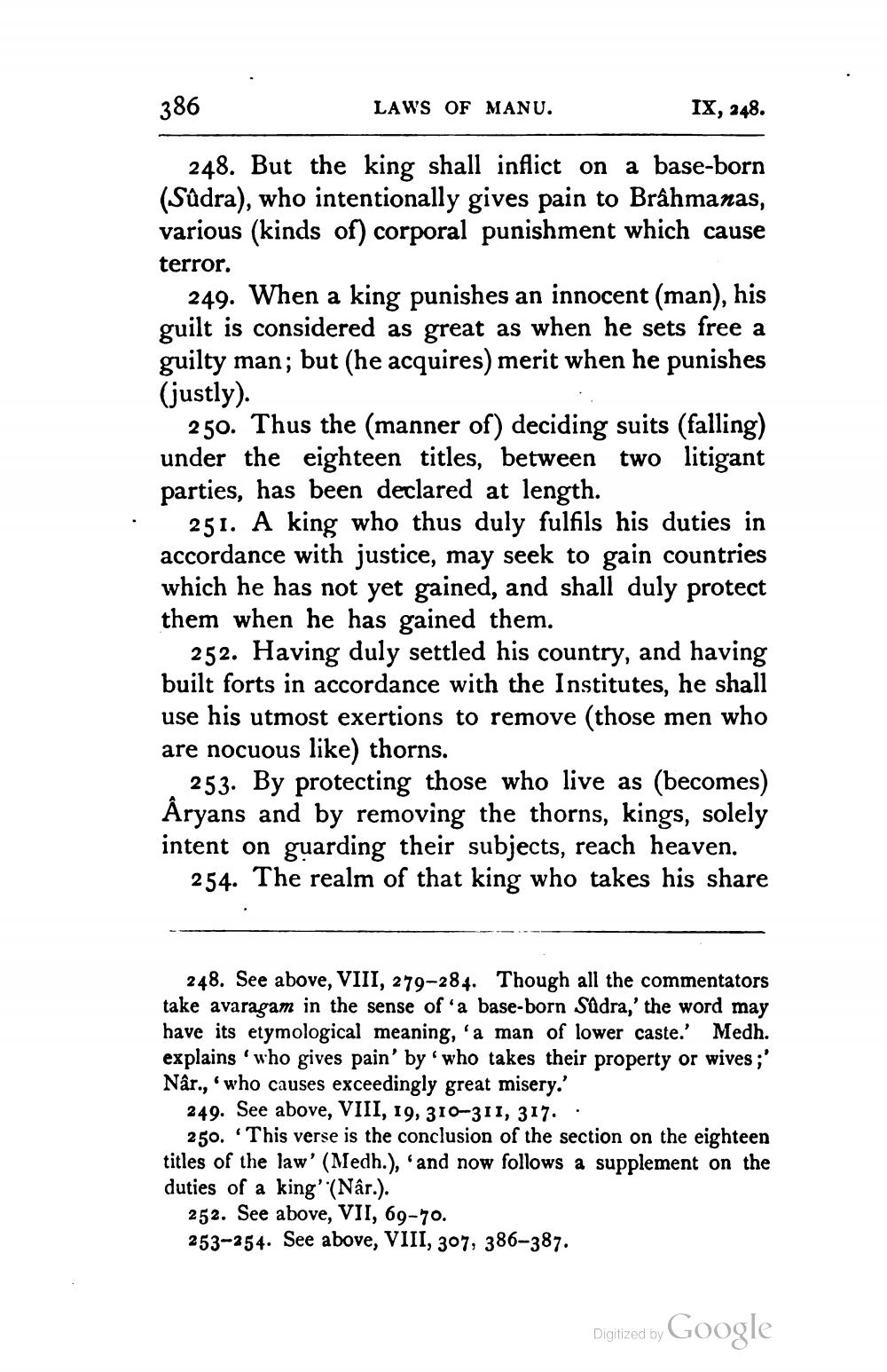________________
386
LAWS OF MANU.
IX, 248.
248. But the king shall inflict on a base-born (Sûdra), who intentionally gives pain to Brâhmanas, various (kinds of) corporal punishment which cause terror.
249. When a king punishes an innocent (man), his guilt is considered as great as when he sets free a guilty man; but (he acquires) merit when he punishes (justly).
250. Thus the (manner of) deciding suits (falling) under the eighteen titles, between two litigant parties, has been declared at length.
251. A king who thus duly fulfils his duties in accordance with justice, may seek to gain countries which he has not yet gained, and shall duly protect them when he has gained them.
252. Having duly settled his country, and having built forts in accordance with the Institutes, he shall use his utmost exertions to remove (those men who are nocuous like) thorns.
253. By protecting those who live as (becomes) Aryans and by removing the thorns, kings, solely intent on guarding their subjects, reach heaven.
254. The realm of that king who takes his share
248. See above, VIII, 279-284. Though all the commentators take avaragam in the sense of a base-born Sadra,' the word may have its etymological meaning, 'a man of lower caste' Medh. explains 'who gives pain' by who takes their property or wives;' Nâr., who causes exceedingly great misery.'
249. See above, VIII, 19, 310-311, 317..
250. This verse is the conclusion of the section on the eighteen titles of the law' (Medh.), and now follows a supplement on the duties of a king':(Nâr.).
252. See above, VII, 69-70. 253-254. See above, VIII, 307, 386–387.
Digitized by Google




